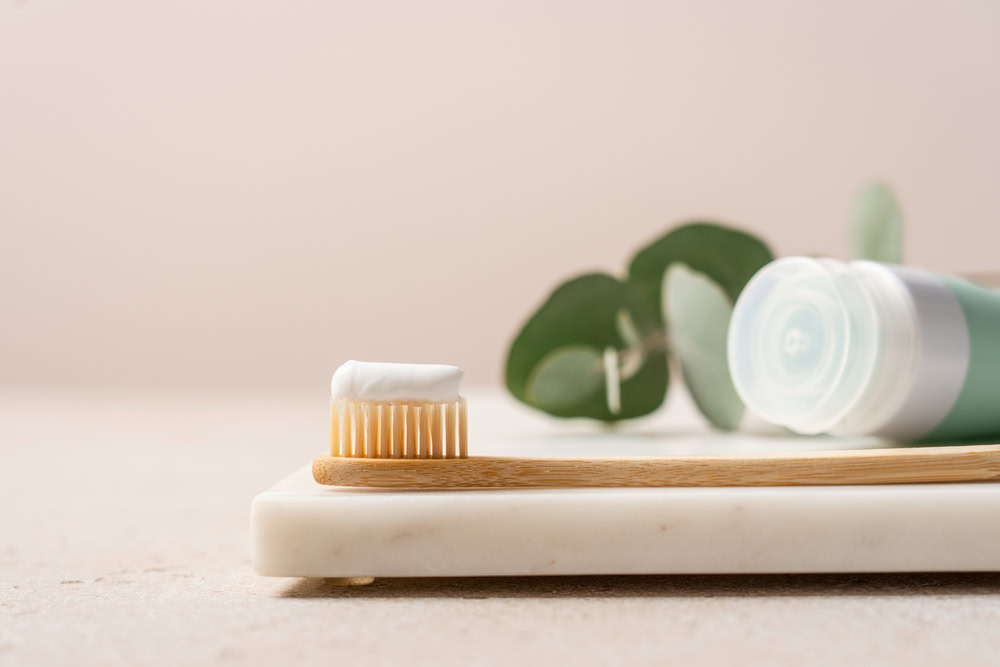What Is the Ruling on Using Toothpaste During Ramadan?
Hanafi Fiqh
Answered by Shaykh Bassem Itani
Question
What is the ruling on using toothpaste during Ramadan?
Answer
All praise is due to Allah, Lord of the worlds, and blessings and peace be upon our master Muhammad, his family, and all his companions.
Using toothpaste during the daytime in Ramadan does not invalidate the fast, provided that none of the toothpaste is swallowed. However, it is disliked out of fear that some of this substance may enter the throat, leading to the invalidation of the fast.
Today, people clean their teeth using what is known as toothpaste, which is the accepted means of dental hygiene worldwide. It comprises complex chemical substances such as abrasives, cleansers, flavorings, colorants, and more. This is unlike previous eras when means such as the miswak or similar were used for dental hygiene, which are natural as they come from cutting trees. Some Muslims still use the miswak to this day in emulation of the Prophet’s sunna, and it also falls under the sunna of dental hygiene.
Miswak and Toothpaste
Here, we must differentiate between the ruling of using the miswak and using toothpaste during Ramadan:
In the Hanafi school of jurisprudence, using the miswak is recommended for wudu, when there is a change in mouth odor, before social gatherings, before reciting the Quran, and so on. This applies to fasting and non-fasting individuals, whether the miswak is dry, moist, or wet.
The Prophet (Allah bless him and give him peace) used the miswak while fasting in Ramadan and at other times. One of the companions narrated that he said, “I saw the Prophet (Allah bless him and give him peace) using the miswak while fasting.” [Tirmidhi]
Naturally, the miswak has a natural taste whether it is dry, moist, or wet. When it is used and finished, it enters the mouth and throat, but it does not affect the fast, and we are not instructed to spit it out because it is permissible according to Islamic legislation.
As for using toothpaste, it involves introducing a chemical compound into the mouth through a toothbrush, causing the substance to expand in the mouth due to cleaning. It is necessary to remove it from the mouth during fasting hours, which requires rinsing the mouth several times to ensure that no part of the substance remains. This may lead to the risk of breaking the fast. Therefore, it is considered similar to excessive rinsing, and its ruling in the Hanafi school is disliked.
Our issue here goes beyond mere excessive rinsing; it involves introducing a substance and removing it as described; even if the particles of the substance disappear, the taste of the substance remains in the mouth for a while. Its presence does not invalidate the fast, but all of this confirms the prohibition of it. [Tahtawi, Hashiyat al-Tahtawi ‘ala Maraqi al-Falah]
I direct you to two matters:
The sanctity of Ramadan is great in the sight of Allah (Most High), and it is obligatory to take precautions to preserve fasting. Any means that may lead to the invalidation of fasting should be avoided. This method of cleaning teeth with toothpaste exposes fasting to corruption, so it should be avoided during the fasting hours of Ramadan.
If you wish to use toothpaste during Ramadan, it is permissible for you to do so at night after iftar and before suhur, before dawn. You can use the miswak during both day and night as prescribed. Thus, you can combine the two methods: the conventional method of our time and the sunna of using the miswak.
May Allah grant us success in avoiding anything that may corrupt our fasting and our deeds.
Shaykh Bassem Itani
Shaykh Dr. Bassem Hussayn Itani was born in Beirut, Lebanon, in 1965. He earned his Ph.D. in Islamic Studies in 2005. Among his mentors were Shaykh Muhammad Taha Sukkar, Shaykh Adib al-Kallas, Shaykh Mulla Abdul ‘Alim al-Zinki, Shaykh Abdul Rahman al-Shaghouri, Shaykh Abdul Razzaq al-Halabi, Shaykh Dr. Mustafa Dib al-Bugha, Shaykh Dr. Wahba al-Zuhayli, Dr. Muhammad al-Zuhayli, and others, may Allah have mercy on them all.
Shaykh Itani has a rich background in both academic and administrative fields. He has held significant positions in many governmental and non-governmental institutions in Lebanon and abroad. This includes his role as a member of the Academic Committee at SeekersGuidance and a senior teacher with the free online global seminary.
From 2020 to 2021, he served as the Dean of the College of Da‘wa – University for Islamic Studies (Lebanon) – Postgraduate Studies. He was the Director of Dar Iqra for Islamic Sciences from 1998 to 2018. Shaykh Itani is a well-versed teacher in several academic subjects, including Fiqh, Usul, Aqida, and Tafsir. He has supervised and examined numerous Master’s and Doctoral theses at various universities and colleges in Lebanon.
His contributions to Islamic sciences are also evident in his writings and research. His notable works include “The Relied-upon Statements of Imam Zufar in the Hanafi School,” “Collective Ijtihad: The Sublimity of Thought in the 21st Century,” and “Custom and its Impact in Islamic Jurisprudence.” Shaykh Itani has actively participated in numerous scientific conferences and seminars, both in Lebanon and internationally. He is linguistically adept, excelling in Arabic, proficient in French, and comfortably conversant in English.
